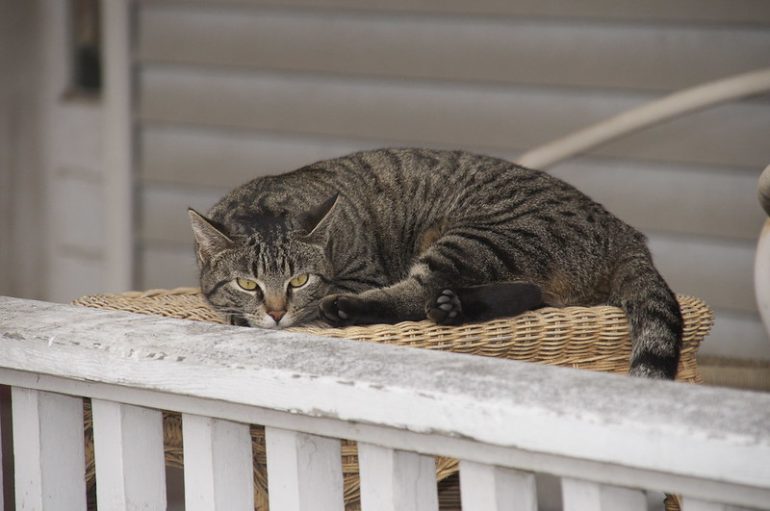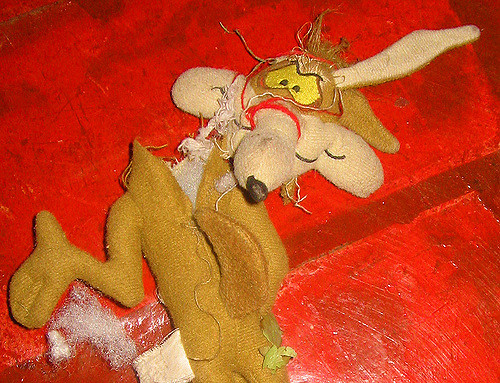Tyler Barton
Mildred could not get the author to come read for the cats. She explained her request in a series of emails, and on his answering machine, and to his mother whom she had found on Facebook: the campus strays that Mildred and her brilliant doctor friend in Sociology had rehabilitated and re-homed were just such huge fans of the author’s stories. Mildred had personally read the cats his first collection no fewer than eleven times that summer. According to Mildred’s data, stress meowing tapered off by almost thirty percent after she gave a reading. When she stood on her back porch and began to perform, say, “The Defenestration of Dennis at Moody Rock,” the cats would creep from the forsythia and gather near the porch stairs. And as the stories, in their elastic, awkward progression, wound down to their final image—the ball of web the pastor’s tarantula rolls at the close of “The Half-life of Bad Kratom,” for example—the cats would mount the stairs and find a spot near Mildred’s feet. That’s when she would launch into the next story. She’d read the book so many times that as she began “Face Yoga on Death Row,” she could hole up in a nook at the back of her brain and imagine new things, things like how inspiring it would be for the animals to hear this work read with the authority and aplomb of the author himself.
All the cats would be rehabilitated and re-homed regardless of the author’s visit, Mildred assured both the author, his mother, and her doctor friend who had decades ago started this program with the strays. Neither the author nor his mother responded. The doctor nodded. She knew it was true. The cats would be fine. This visit would’ve only been a bonus.
After her doctor friend died, Mildred continued the program but changed one rule. Anyone who wanted to home one of her rehabilitated strays had to prove that they owned a copy of the author’s collection before adoption. Most of the new cat owners were college students, so they just added it to their textbook purchase list, and soon the school’s bookstore started keeping copies in stock. Nice kids, Mildred told the cats as she prepared them for their new adventure. They have the book, and I really think they’re going to read it.
Mildred re-homed every cat she encountered, until the entire college town was free of strays. As she climbed into her car after the last drop-off, she thought about the home she would soon return to—an entire property, catless and clean. She’d forgotten to keep anything for herself. Anything besides the book, which by now she hated like the plague.
On the porch the next morning with her steaming tea, she saw something rustling in the yellow bushes. Often the same cats turned back up, became strays again when the college kids moved out and realized their next apartment would be much cheaper sans animals, especially semi-feral ones who only tend to chill when you read from some pretentious collection of short stories. But this was not a cat. The thing emerging from the forsythia was a man named Craig, an author, who sat on the bottom porch stair and listened quietly to Mildred read. The stories did not sound familiar to him, and maybe it was because he’d been about three different people since he wrote that unloved book, or maybe it was because the stories weren’t his. They were Mildred’s. And maybe they weren’t stories at all, but songs. And maybe Craig sang along.
Tyler Barton is a cofounder of Fear No Lit, home of the Submerging Writer Fellowship. He’s the author of the flash collection The Quiet Part Loud (Split Lip Press). His work has appeared in Kenyon Review, The Iowa Review, NANO Fiction, Paper Darts, and elsewhere. “to home” is one piece of his connected microfiction manuscript, TO WORK: A Verblist, which focuses on the absurdity and dread of modern work. He lives in Lancaster, PA, where he teaches free writing workshops to residents of assisted living facilities. Find him on Twitter at @goftyler or on the web at tsbarton.com.


